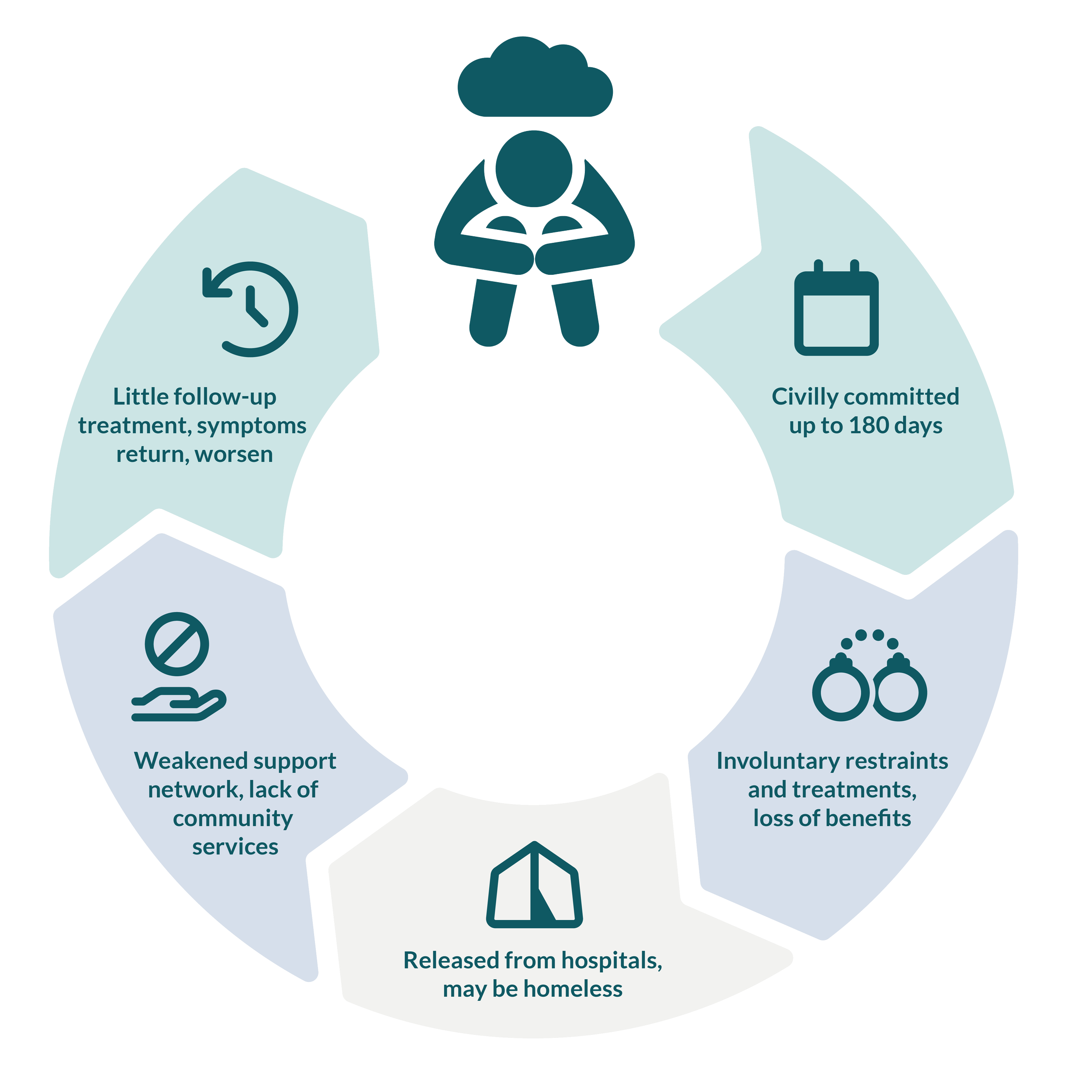FAQ: Civil Commitment in Oregon
Frequently Asked Questions
What is Civil Commitment?
Civil commitment—sometimes called involuntary commitment—is a legal process in which a judge decides whether a person should be forced to accept mental health treatment in a hospital for up to 180 days—or one year in the case of intellectual/developmental disabilities—because they are a danger to themselves or others, or they are unable to meet their basic needs due to mental illness. Consequences can include forced medications, involuntary medical procedures (including surgeries), and physical and chemical restraints.
Leather restraints are used to physically hold people against their will in a psychiatric hospital when they have been civilly committed.
How Much Does Civil Commitment Cost?
Civil commitment is a terrible investment for Oregonians—especially after decades of disinvestment in our behavioral health system have led to today’s mental health, substance abuse, and homelessness crises. Civil commitment is the most expensive way to get care for the fewest people.
Oregon pays $321,000 to forcibly
commit one person for 180 days—
often to have symptoms return and worsen upon release from the hospital.*
According to a 2023 Oregon Criminal Justice Commission Report (*see Page 19), it would cost more than $32 million to forcibly commit 100 people for 180 days.
Instead of of diverting limited resources to a broken system, Oregon could invest that same amount of money in building preemptive solutions, such as each of the following:
24-hour emergency mobile crisis response teams, like CAHOOTS in Eugene, in 40 more cities and towns;
Intensive, in-patient substance abuse treatment for 5,333 people; or
20,100 additional shelter beds for homeless individuals and families.
Does Civil Commitment Work?
Civil commitment was never intended to provide definitive mental health care. It is designed to provide emergency care for people experiencing a temporary crisis.
We have witnessed firsthand how broken the process is while representing everyone facing civil commitment in Multnomah County since January 2023. In very few cases, it helped people experiencing a mental health emergency—but only when their crisis was temporary, and they had a dedicated support network and a place to call home after the crisis ends.
Civil commitment causes additional trauma and can make a person permanently resistant to future treatment, including voluntary.
That’s not the case for most people in the system. We repeatedly see people cycling between mental health crisis, police involvement, hospitalization, and then back into homelessness.
Our investigations find that too many of our clients receive too little follow-up medication after they are released from a psychiatric hospital and are not connected with long-term services. Additionally, our clients often lose their housing and access to health insurance while committed.
Instead of helping people heal and recover, civil commitment ends without solving the long-term challenges that a person with mental illness faces.
For people experiencing chronic mental crisis, civil commitment is often a never-ending cycle of trauma.
Should Civil Commitment Statutes Be Expanded?
No. Oregon’s civil commitment statutes should not be applied to even more members of our community. The process is broken, discriminatory, traumatic, and rarely successful.
Where Can I Learn More about Civil Commitment?
We published “Mental Health Holds and Civil Commitment” in 2022 to provide general information about the rights of people with disabilities involved in the civil commitment process. The information is provided as a public service and is not legal advice. Your civil commitment attorney is the best resource for your questions and concerns, so please contact them to discuss your civil commitment.


